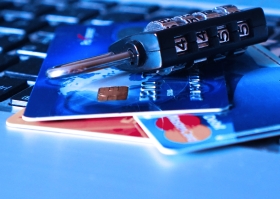

If you are like any normal South African, you approach intersections labelled ‘high crime’ or ‘high smash and grab zone’ with an overabundance of caution and the same applies to any intersection where there are a lot of people loitering around your vehicle. The last thing you want is to become a victim of a crime of opportunity.
Close to 41% of the South African population has a smartphone. With government encouraging the public to practice social distancing, online banking platforms have become extremely popular. Criminals are aware of this and reports from the South African Police Service point out that when it comes to crimes of opportunity (i.e. smash and grab) criminals press their victims for their online banking password before making off with the phone.
“This creates a situation where members of the public are increasingly becoming victims of identity fraud. So, what happens when your phone is stolen? Who must your report it to once you have reported it to the police?” asks Manie van Schalkwyk, CEO of the Southern African Fraud Prevention Service (SAFPS).
Contact your bank
The SAFPS approached a number of banks with this question and the simple answer is that victims of these crimes should contact their banks as soon as possible.
The device needs to be delinked from the banking profile as soon as possible. The victim of the crime needs to ‘break the handshake’. This is critically important. The next step is to change their password or sure phrase - the phrase that allows you to access your account. Clients should then consider adding an extra layer of encryption to their account making fraud less likely.
Another bank adds that victims of these crimes should block the actual bank account that the stolen phone accesses as well as the profiles related to this account. Once the account is secured, the victim should notify the cellphone service provider to block the SIM and the IMEI of the stolen device.
“There are a number of other steps that the public can take,” says Van Schalkwyk. “Be aware of your surroundings. If you are sitting in an outdoor café or restaurant know that if your phone gets stolen, the thief can make an easy get-away. Try to use your phone discreetly. In addition, be very wary of public Wi-Fi networks as they are unsecured. Finally, once you have reported the stolen device to the relevant authorities, contact the SAFPS.”
Taking the above action is critical in preventing identity fraud, which is a common crime in South Africa. However, criminals act quickly. The SAFPS can offer key assistance to victims of these crimes as one of the key services that it offers is protection against identity fraud.
Protective Registration
One of the most important services and the core of SAFPS’ service offering, is Protective Registration. Protective Registration is a free service protecting individuals against future identity fraud. Consumers apply for this service and the SAFPS alerts its members to take additional care when dealing with that individual’s details.
Protective Registration provides an added layer of protection and peace of mind regardless of whether the identity of the applicant has been compromised.
“If a member of the public wants to become proactive in the fight against fraud, the SAFPS is there to serve them. Visit our website on www.safps.org.za. Click on the fraud prevention tab and protect yourself against identity theft with Protective Registration. For best results, use your smartphone to go to its website. Once you have uploaded key pieces of information, you will add another layer of protection against potential ID fraud,” says Van Schalkwyk.
Victim Fraud Registration
Through Fraud Victim Registration, the SAFPS will assist applicants in preventing fraud that is a result of identity theft and impersonation.
This will protect applicants from associated financial implications. The SAFPS will issue applicants with a Victim of Impersonation Letter which they can share with future credit providers to assist in any verification processes.
Consumers are urged to visit the SAFPS website on www.safps.org.za and click on protect your identity. It is recommended that a smartphone is used in this process and that the applicant has a copy of their ID with them. Alternatively, applicants can follow the manual process explained on the website.
Go to www.safps.org.za

© Technews Publishing (Pty) Ltd. | All Rights Reserved.